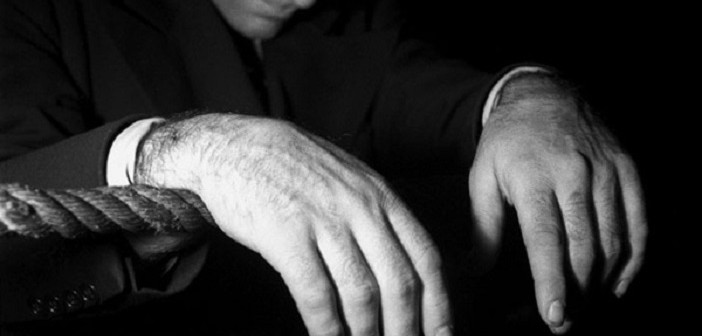Are these the hands of a gentleman? Or a man licensed to kill who hung out with Edith Piaf during the heyday of the Copa? Maybe even those of a French resistance helper spreading a stretch of barbed wire to help a friend to freedom.
If Captain Louis Renault, that affable French police commissioner in the Humphrey Bogart classic “Casablanca” was answering the question it could be all of the above.
If there was a real life, or even virtual Rick’s Cafe in Casablanca, former world middleweight champion Marcel “the Moroccan Bomber” Cerdan would have been there, knocking back a scotch and putting the moves on Ingrid Bergman while Sam played “As Time Goes By.”
And when Captain Renault gave the order to “round up the usual subjects” Cerdan, a French North African Jew, would not have been one of them.
Shielded by the corrupt anomie of colonial Vichy France, Cerdan spent years barnstorming and boxing in smoky club fight venues in French Morroco and Algeria. He rode on the same kind of old Renault bus that the protagonist in Albert Camus’ existential novella, The Stranger, took to pay respects to his mother. But his hands didn’t pen that classic lead in “mother died today, or was it today.”
Ironically, Cerdan died traveling to pay his respects not to his mother, but to his main squeeze, legendary French chanteuse Edith Piaf, who was in New York doing a series of singing engagements. He was on a Lockheed Constellation, the plane Howard Hughes helped design and often rode en route to one of his own trysts, when it crashed into a mountain preparing to land for a refueling in the Azores Islands. Press reports indicated he was wearing a watch on each of his hands to keep track of the different time zones. Was it an Omega, Rolex or a plain old Montres Lip…
These hands could be mistaken for those of Jake LaMotta, the “Raging Bull,” who broke Cerdan’s shoulder and took the middleweight title. Or even those of Hollywood’s working class hero John Garfield, who was a “sucker for a left hook” and starred in the Clifford Odets boxing classic “Golden Boy” before LA fighters Art Aragon and Oscar de la Hoya copped the name.
Inside the ring, and out, one thing is for sure: Cerdan’s hands earned him the iconic image of the tough but classy French hero at a time that the nation was trying to recover from the Vichy faiblesse and its collaboration with Hitler’s Nazi regime during World War II. The government was paying families to have a third child pour la france and Cerdan was their poster boy.
When Cerdan’s hands lost their grip on life France lost its grip on the world. Viet Nam, Algeria and West Africa rebelled and turned left. While Jacques Fath and Coco Chanel spawned new styles and Jean-Paul Sartre preached communism, Charles de Gaulle, a vain leader who refused to wear glasses because he thought they made him look less manly, led France through much of the Cold War.
Today, most Americans think the French are a bunch of weenies. Retired general Stanley McChrystal was sacked by President Barack Obama after making disparaging comments about a gay French defense ministry official in aRolling Stone interview. Obama himself snubbed French President Nicholas Sarkozy, calling off a state dinner. Sarkozy, who is no weenie, has the knack for political street fighting. But beyond the hands does he have theelan of Marcel Cerdan?




